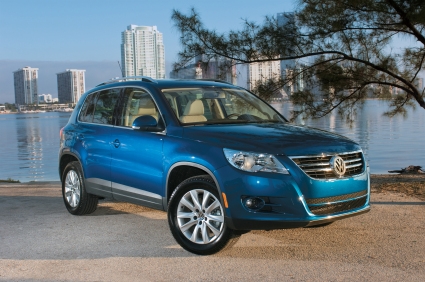
The sport utility vehicle (SUV) segment has peaked as buyers are flocking to the crossover utility vehicle (CUV) segment instead. Outwardly, the differences between these two types of vehicles is not always perceptible, but underneath there is one important distinction--an SUV is built on a truck chassis while a CUV rests on a car chassis.
Most buyers won't see or will understand these distinctions. While the Ford Explorer is clearly an SUV, the Ford Escape is a CUV. When it comes to picking the safest four-wheel drive SUV, both segments should be covered as one.
SUVs can be traced back to the 1930s when the first Chevrolet Suburban was built. That vehicle, which is still in production today, was an eight-passenger station wagon resting on a truck frame. Over the ensuing 75 years, Jeep, Land Rover, Mercedes and a host of other car manufacturers offered their own models, riding a wave of demand that picked up in the late 1980s before cresting around 2005.
Many SUVs are offered in either two- or four-wheel drive with all-wheel-drive, representing those vehicles that always use all four wheels to power the vehicle. Conversely, a four-wheel drive vehicle can switch between two- and four-wheel drive, often at the drop of a switch.
The advantages of owning a four-wheel-drive SUV are many. Most have a higher profile, which allows drivers to see above cars while maintaining a near equal viewpoint with other, larger vehicles. Interior room is usually considerable, allowing plenty of room for passengers and offering copious amounts of storage. Four-wheel-drive comes in handy in all sorts of weather conditions, ensuring that your vehicle stays on the road or is able to extract itself from mud. Most SUVs have ample towing capacity and able to pull a boat or camper with ease.
Choosing the safest four-wheel-drive SUV means examining scores of models. You can narrow that list down by looking for an SUV that comes equipped with all of the latest safety features, including anti-lock brakes, traction control, stability control, airbags and side curtain airbags, steel safety cage and numerous other safety devices. Narrow this list down to remove all SUVs that performed poorly in roof strength tests and you're left with just four vehicles according to the Insurance Institute for Highway Safety (IIHS): Volkswagen Tiguan, Subaru Forester, Honda Element and Jeep Patriot.
There is no need to name a winner. With just four models to compare, put each one through the paces and read up on what Consumer Reports and similar magazines have to say about each one. From there, you should be able to find an SUV that meets your needs and is among the safest passenger vehicle in that segment. One final thought--the aforementioned IIHS survey was for small SUVs. Generally, the larger the SUV, the more likely you'll experience roof failure in a rollover, thus the selection of smaller SUVs only.